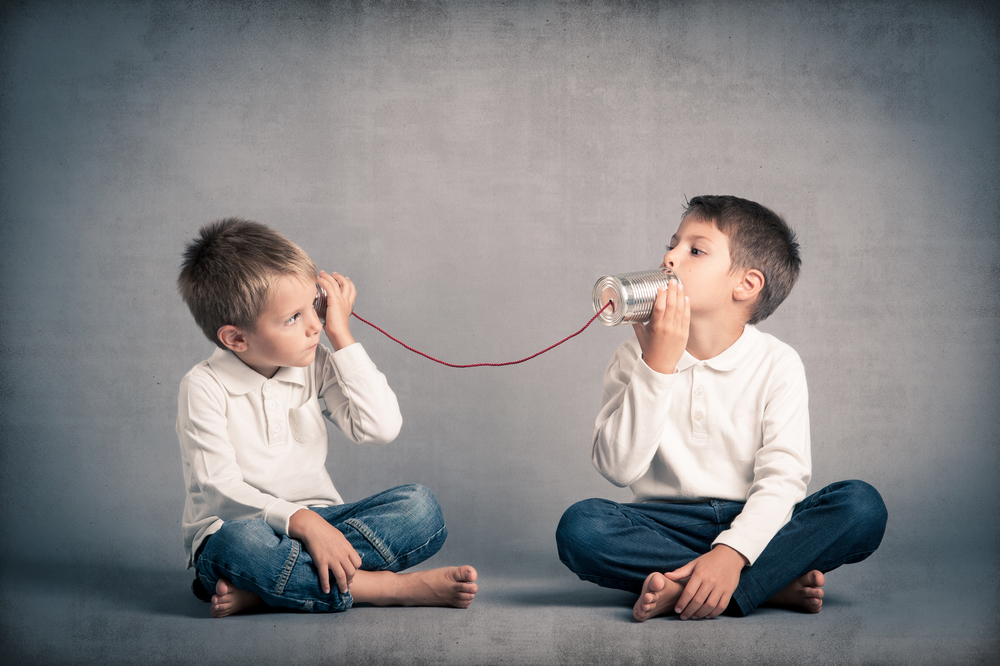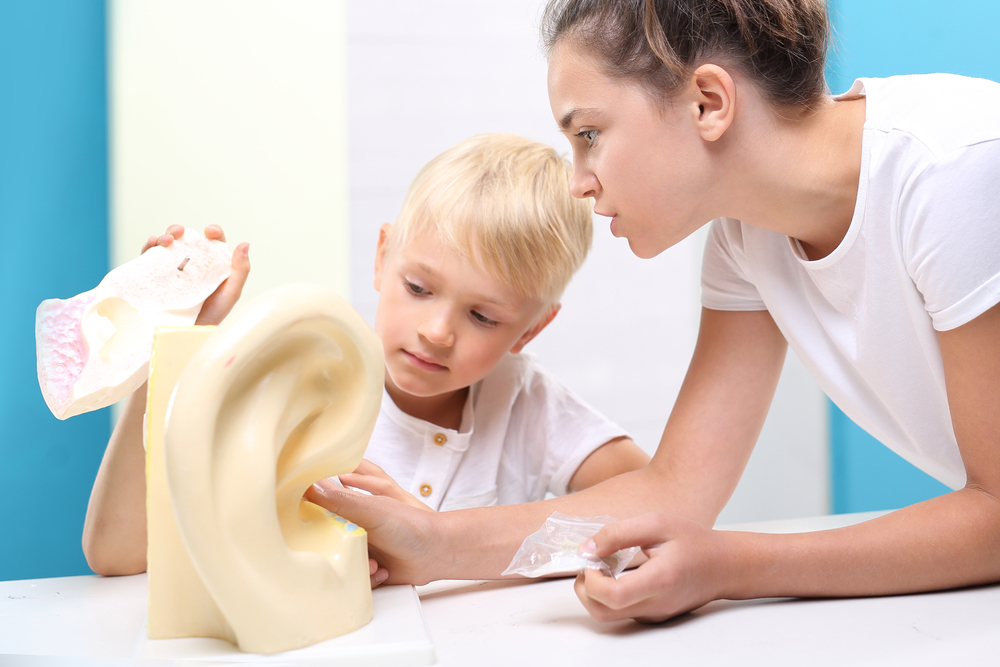
Identifying and appropriately treating hearing loss in children is important. Even mild hearing loss can affect a child’s ability to speak and also to understanding language.
Mild hearing loss can also affect other areas of a child’s life and well-being, such as their behavioral development.
Previously, hearing loss was often undetected until a child was around two years old. Then, it became more apparent because the child might not have started talking yet.
Now, there is more of a focus on early assessment so that intervention can occur as soon as possible.
For example, research indicates that treating a baby’s hearing loss before the age of six months improves outcomes significantly. That finding is why hospitals in the United States universally do newborn hearing screens.
The following are some of the things to know about hearing loss in children, including possible causes and what to do about it.

How Prevalent Is Childhood Hearing Loss?
According to the Centers for Disease Control and Prevention (CDC), some level of hearing loss is detected in 1.7 per 1,000 babies screened as newborns. Screenings have gone up significantly, as well. For example, the CDC reports there was an increase of nearly 3% in the number of infants receiving a hearing screening from 2006 to 2016.
What Are the Causes of Newborn and Children Hearing Loss?
According to the CDC, some of the potential causes of hearing loss in babies and children include:
- Genetics: Genetics are responsible for anywhere from 50 to 60% of children with hearing loss. Around 20% of babies with genetic hearing loss have a syndrome causing it or linked to it.
- Infections and Environment Causes: Around 30% of babies with hearing loss may experience it because their mother experienced an infection during pregnancy or other environmental causes, as well as complications after birth. One example of an infection that can lead to newborn hearing loss is called congenital cytomegalovirus. Hearing loss can happen when a pregnant woman has a condition such as preeclampsia or diabetes, and premature babies have a higher risk of hearing loss.
- Otitis media: This is middle ear infection, and in severe cases, otitis media can lead to permanent hearing loss in children.
- Illness or Injury: Other illnesses that can lead to hearing loss in young children include the flu, measles, chickenpox, and meningitis. Head injuries, loud noises, and some medicines can contribute too.
- Newborn jaundice: This would be a possible contributor to hearing loss in a baby with a bilirubin level high enough to need a blood transfusion.
What Are the Symptoms of Hearing Loss in Young Children?
If your child wasn’t diagnosed with hearing loss as a newborn, some of the later symptoms could include not reacting to sounds or voices and making tapering off sounds. For example, most newborns will startle if there’s a sudden loud noise and by three months a baby should be able to recognize their parent’s voice. By six months babies can typically turn his or her head or eyes toward a sound. As a baby grows into a toddler, possible signs of a hearing-related issue may include:
- Limited or no speech
- Inattentive
- Requiring a higher volume on the TV
- Doesn’t respond appropriately to speech
- Doesn’t respond to his or her name
- Becomes frustrated by background noise
If your child has a hearing screen at the hospital as a newborn, which they should before they’re discharged under the Early Hearing Detection and Intervention Program, and they don’t pass it, it doesn’t automatically mean they have hearing loss. Certain factors such as fluid in the ear can impact the accuracy of the newborn hearing screen.
If a child has a normal hearing screen, they should still have regular hearing evaluations.
These are most often done at the ages of 4, 5, 6, 8 and 10, or if there is a reason for concern.
What Are the Treatments?
There are different treatments for childhood hearing loss, and they depend on the cause of hearing loss and other individual factors. An audiologist can perform a hearing evaluation for children as young as six months.
If there is a hearing problem, hearing aids might be recommended. A cochlear implant is another option for babies and children who can’t use hearing aids. There is also something called bone-anchored hearing systems, which are primarily for hearing loss related to malformations of the outer or middle ear.
Speech therapy may be something a child with hearing loss benefits from as well.
The primary thing to know with newborn or childhood hearing loss is that early detection and intervention are going to lead to better outcomes.


Speak Your Mind